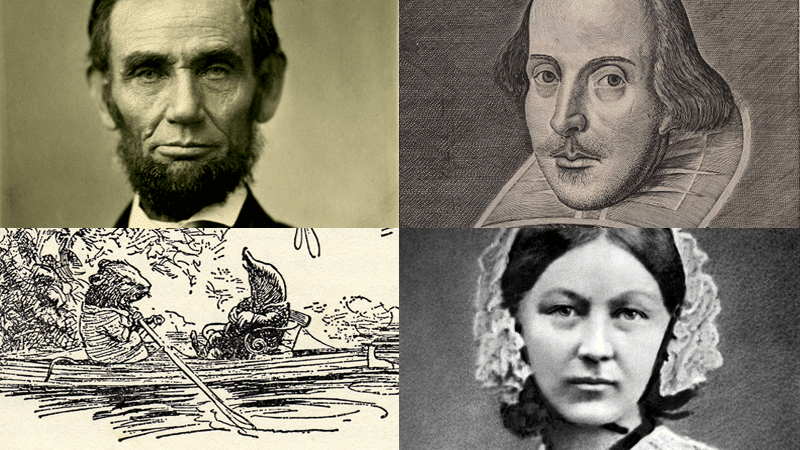Rewriting history

New guidance for teachers in Scotland suggests that lessons should address the ‘hidden lives’ of people rumoured to be Lesbian, Gay, Bisexual or Transgender (LGBT).
Backed by the Scottish Government, it states that failing to address this in all areas of the curriculum could compromise pupils’ wellbeing. It’s all part of the current push in Scotland to promote all things LGBT.
Nursing icon Florence Nightingale, for instance, is apparently a lesbian. It’s a suggestion dismissed by David Green, Director of the Florence Nightingale Museum. He has confirmed there is no accepted evidence to support the theory, and substantial evidence to the contrary.
“the most spurious evidence is presented as fact”
And this is not an isolated incident. It seems that people are queuing up to label historical and fictional characters as gay.
In his 2017 book The Making of the Wind in the Willows, academic Peter Hunt describes the beloved children’s classic, as a ‘gay manifesto’. Despite the fact that author Kenneth Grahame was married with a son, Professor Hunt claims the children’s book is an exploration of his sexuality. His evidence includes a description of how Mole and Ratty “tumbled in between the sheets in great joy and contentment” – although it’s clear a few lines above that they had separate beds. But it is enough for him to conclude: “It’s hiding in plain sight”.
Spurious evidence
There is an obvious danger in reading words written in a very different time and in a very different context and then claiming to interpret their meaning. Author Daisy Dunn argues that reading classic books “through the lens of today’s world” is detrimental. She remarked: “In trying to be broad-minded and find ourselves in a text we end up making it far cruder than it really is”.
From William Shakespeare to Jane Austen, Abraham Lincoln to Amelia Earhart – the most spurious evidence is presented as fact. Rumours persist about scientist Isaac Newton, with even more disputed and conjectural material.
And it’s not just historical and fictional figures who are affected.
In 2017, The National Trust – to the great dismay of his surviving family – ‘outed’ the late owner of Felbrigg Hall, Robert Wyndham Ketton-Cremer, in a project called Prejudice and Pride, celebrating gay people associated with its properties. This was despite there being little to suggest that Ketton-Cremer was homosexual. Relatives criticised the National Trust, describing the speculation over his sexuality as “unhelpful”.
“the most spurious evidence is presented as fact”
Disproportionate focus
Nothing is off-limits it seems. There have even been insidious remarks made about relationships in the Bible such as Ruth and Naomi, and Jonathan and David, despite the context clearly showing otherwise.
Our hyper-sexualised culture rushes to elevate sexuality to the expense of everything else. We’re bombarded with advertising campaigns that use sexual images to get our attention. Sex sells. This disproportionate focus on sexuality, which includes latching on to obscure comments and unlikely scenarios, is part of a dubious attempt to normalise homosexuality.
The Scottish Government, Peter Hunt et. al. do a great disservice to the contribution of many men and women, and to their respective fields, by using them to bolster their desperate campaigns.
